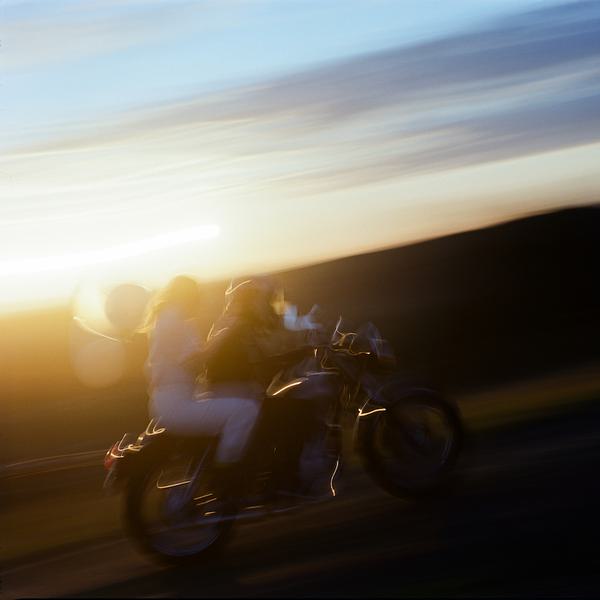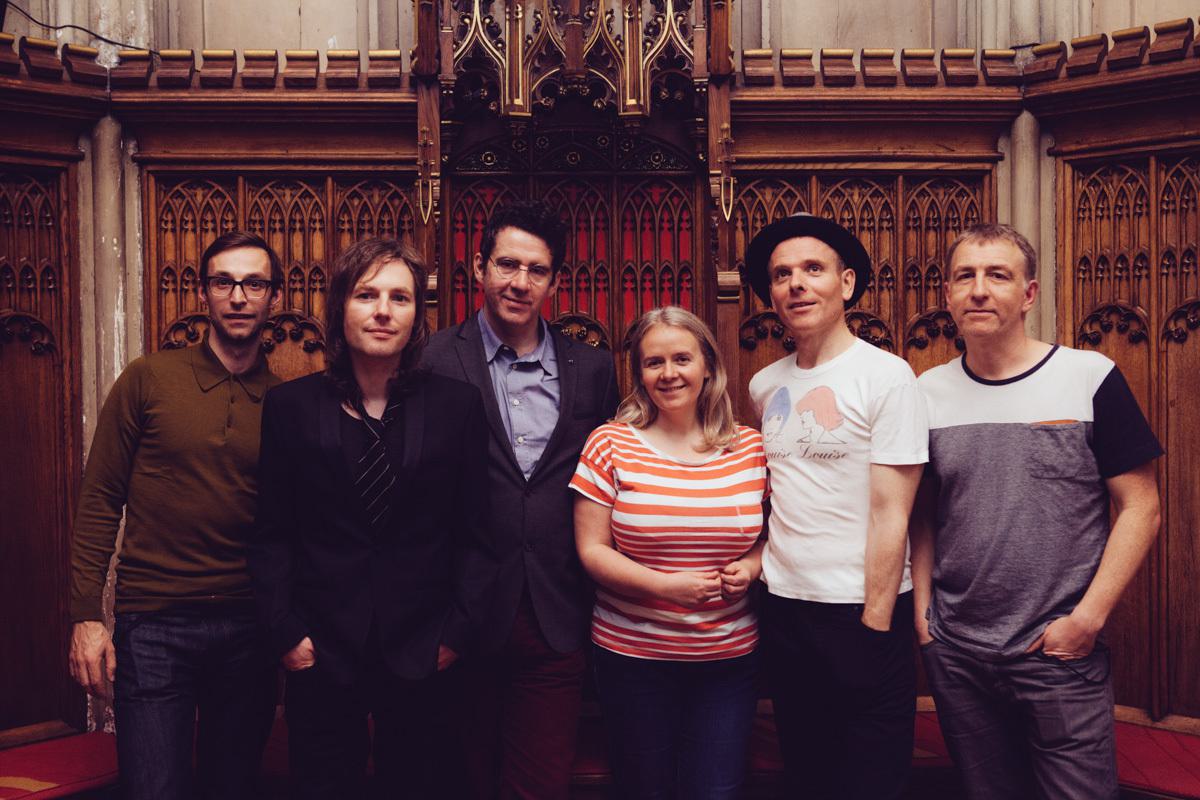
Belle & Sebastian: "As usual, we haven't done things by the book"
“I’ve spent all day feeling like I’ve got one foot in 1997.”
In December of that year, Belle & Sebastian - who at that point had been a going concern for just shy of two years - played one of their first major shows outside of their native Glasgow. It was also, probably, the worst in their history. A taste for playing in unconventional spaces - such as the cafes that have become an iconic part of the band’s folklore - had gotten well out of hand, and they found themselves at Manchester’s Town Hall - seldom used for concerts - performing a matinee show in the round. In an effort to keep things communal in a 1200-capacity room, the group eschewed monitors in favour of speakers onstage, so that they’d hear the same thing as the audience. Keyboardist Chris Geddes - ‘Beans’ to most - was navigating proceedings with a monumental hangover, with sick bucket on standby beneath his Mellotron. By their own admission, it was a case of full marks for ambition, and scarcely any for execution. “Three shows in two days,” says Stuart Murdoch, grimly. “It was completely memorable for being one of the famous early disasters.”
That he's bringing this up across town at the Cathedral all these years later, twenty or so minutes after coming off stage, perhaps suggests that he hasn’t marked tonight down as a roaring success either. In reality, though, he’s remarking on the similarity of the venues; we’re sitting at one end of an intimidating oak table ‘backstage’, in a beautifully ornate room - there’s wood-paneled walls, stained-glass windows, and what looks like an enormous candelabra bearing down from above. “When we got here, I thought there’d be certain types of songs that were going to work well in this place. Some of the more baroque stuff. Best not to get too heavy in a place like this.”
He’s talking, ostensibly, about the acoustics, but the opportunity to have a little bit of fun with the setlist doesn’t seem to have passed him by. The rarely-aired "The Model", which references choir stalls before suddenly getting a little risque, makes the cut. "If You’re Feeling Sinister" links agnosticism with suicidal thoughts and contains the immortal line “she was into S&M and bible studies, not everyone’s cup of tea” - that one shows up, too. "Dirty Dream Number Two", also, is aired early on. The balance between the Church’s puritanism and his often-suggestive work is one that Murdoch’s been trying to strike ever since he gave his minister a white-label copy of Tigermilk back in 1996, to avoid exposing him to the topless model on the cover of the retail version. You can forgive him a little cheekiness tonight.
It’s funny that he should feel like he’s been stuck in the past today, too, because just a few hours earlier, the first track from the massively overdue new Belle & Sebastian record - Girls in Peacetime Want to Dance - has just gone out online; "The Party Line" is a straight-up disco stomper, framed by detached cool and flawlessly polished production. Jeepster-era B&S it ain’t, and it’s a fair representation of what is - by a country mile - the most diverse record the band have made to date. The halcyon days of Tigermilk, Sinister and The Boy With the Arab Strap were marked by a totally singular sound - nobody did Belle & Sebastian like Belle & Sebastian. Since Dear Catastrophe Waitress, though, they’ve done more than their fair share of sonic shape-shifting.
“Waitress was a bit of a turning point,” Murdoch says, “because it was the first time we brought in a producer from outside of the band. As soon as you do that, you’re bound to start experimenting a little bit more; you can play around with different ideas, because suddenly you’ve got more free time. You’re not running around worrying about whether a bass part sounds exactly right, or anything like that. You can be more daring, more dexterous.”
The man behind the boards this time around was frequent Animal Collective collaborator Ben Allen, and recording with him necessitated decamping to his studio in Atlanta, Georgia - perhaps, on the face of it at least, a state of affairs not ideal for a band with young families back home. “We never would have gone to Atlanta if it hadn’t been for Ben, that’s for sure,” admits Murdoch. “I mean, you don’t go anywhere to make a record unless there’s a reason; unless you’re the Happy Mondays and you’re looking for drugs, or you’re the Stones and it’s for tax reasons. He came to Glasgow to listen to the tunes and have a chat, but we were happy to go out there. It’s nice, in a sense, to kind of put yourself in exile to a certain degree. For my part, I was feeling weird around that time anyway; poorly, and kind of run down, and actually going somewhere where you’re separated from family and city and everything else can be very therapeutic.”
The record itself - like its predecessor, 2010’s Write About Love - is arriving after an extended layoff for the band, primarily due to the God Help the Girl project that has taken up as much of Murdoch’s time as Belle & Sebastian have over the past eight years or so - first as a record and then as a musical film, which finally saw the light of day this past summer. Their recent rate of output, then, has been a far cry from their prolific return in the nineties. “We sat down to write for the first time in a long while about this time last year; the film had been keeping me busy. I started on God Help the Girl in 2006, after we finished touring The Life Pursuit, and it was the first break I’d ever really had from the band - it was really ten solid years of writing and playing. It was such a joy to be able to leave it behind and cast off into film world, and Write About Love was really like a blip in the middle of that. It’s been a long, long time without that much Belle & Sebastian activity, really, and you do think about the fact that the people in the audience have grown up properly since you last saw them.”
.jpg&q=90&auto=format&w=792&fit=max)
Nevertheless, they’ve been able to slip back into the saddle pretty smoothly, even if they have changed labels for only the second time in their history - they’ve jumped ship from Rough Trade to Matador. “That was all very natural. The thing with Rough Trade was that I think that (label boss) Geoff (Travis) kind of tends to go for three or so records with a band, and then is happy to move on. Matador were only too delighted to take us on; we’ve known them forever, because they’ve always put our records out in the States. They’ve got us for the whole world now, and it’s been funny seeing a different personality to them now that they’re actually stumping up the cash. That’s good, obviously; I like to see people anxious, and to make them sweat - you know they care about the record. We’ve got new everything now - new management, a new publisher, a new label - and we’re really chuffed we can take all that time off and just ease back into things so comfortably.”
That tonight’s show opens with "Enter Sylvia Plath" - a Europop-inspired newie that runs at nearly seven minutes - certainly speaks to their confidence, as well as to the breadth of the influences on Girls in Peacetime; there’s a little bit of everything in there. "The Cat with the Cream" and "Ever Had a Little Faith?" hark back to old-school B&S, whilst the Stevie Jackson-led "Perfect Couples" is scored through with bongos and "The Everlasting Muse" boasts a jazzy, wandering bassline that gives way to a Beirut-style chorus. There’s still real cohesion, though - thanks in no small part to Allen’s production - and Murdoch insists he never saw the sheer variety of the album as a problem at the writing stage.
“You shouldn’t limit yourself, ever,” he explains. “You certainly shouldn’t limit yourself when you’re writing, because you want to go where a song takes you. None of these were contrived; I’d never go down that road. When ‘Enter Sylvia Plath’ came into my head, that was just how it sounded; if I’ve got some Eurodance in my veins, then so be it. I think that what we often do is make pop music, but take it in an unusual direction lyrically. That’s certainly true of that track, because it’s about a young boy having this love affair with an American writer, and wanting to save her life, even though she’s long dead. There was a little bit of a clash with Ben, overall, because the collection of songs was perhaps a bit too diverse for his tastes, but that’s the point of having a producer. It’s his job to come up with a contemporary sound, whereas I only really care about making the most out of the songs. It’s good to have those little conflicts.”
He’s similarly unflustered about the possibility of a backlash against the new sound - the move towards dancier territory, especially - whether from critics or the band’s fanbase. “It’s not like this is the sixties or seventies, where people are coming to the gigs and shouting 'Judas!'" he says, grinning at that particular name having cropped up in our current surroundings. “I mean, is anybody’s new record that important in the scheme of things? I think even if we made Metal Machine Music, or something else completely unrecognisable, it’s hard to imagine the same level of out-and-out rejection as there used to be in the past. We’re in a fortunate position, where we can genuinely follow our own ideals. It’s not like we’d ever take the piss; we’re honest. I’ve always listened to a lot of pop stuff, and I’ve always listened to a lot of middle-of-the-road stuff. It’s what I love, and so that’s the palette I’ve been working with.”
.jpg&q=90&auto=format&w=792&fit=max)
Thematically, too, Murdoch has often gravitated towards a similar set of ideas; whether it’s plucking romanticism from mundanity or indulging in a little kitchen sink imagery, his lyrics can frequently be traced back to his early twenties, when ME - or chronic fatigue syndrome - left him effectively housebound for a number of years. It’s disarming, then, that nearly two decades on from Tigermilk, this ninth record actually opens with the first song that he’s ever written that directly addresses his illness, "Nobody’s Empire" - for a man so given to conjuring up characters through whom to channel his feelings, it’s a very personal left turn.
“It was as much of a surprise to me as to anybody else, because I’ve always been writing songs that, even if they weren’t specifically about ME, they were at least from the perspective of a person with ME. That was the big thing that happened to me; I think everybody has a big thing that happens to them at some point in their life that sets them off in a certain direction, and that was definitely it for me - getting so ill at nineteen that I had to give everything up, and ending up in this kind of vacuum from which I’d eventually start making music. ‘Nobody’s Empire’ is still couched in metaphor, and you’re not supposed to know exactly what’s going on, but it’s strange; on the one hand, I feel as if I’ve finally been able to write down exactly what happened because I was far enough away from it, but on the other, I actually did kind of relapse last year, when I was totally worn out from making the film - I was back in ME land for nine or ten months. Maybe I wrote it to make myself feel better, and to remind myself that I’d gotten through it once before; either way, it’s a very intimate song.”
There’s an irony, I point out, to the fact that making God Help the Girl tipped him back over the edge into illness, given that it’s probably the most sophisticated example to date of Murdoch using a fictional construct to deal with his condition; the film’s central character, Eve, begins writing songs in hospital as she recovers from a severe eating disorder, with aspirations of putting a band together once she’s better. “Exactly. It really was surprising, especially because I thought, having spent all these years working on the film, that I’d be done with that particular topic by the time the next Belle & Sebastian record came along. I was in much better health when I was thinking like that, though, and ‘Nobody’s Empire’ was a way to come at the topic from a very different angle - I wasn’t trying to hide behind anybody else, imaginary or otherwise.”
There’s another little legacy from the making of the film on Girls in Peacetime, too, in the form of a guest turn on "Play for Today". “That’s Dee Dee from Dum Dum Girls. Did you not recognise her?” I didn’t - perhaps because the track’s immaculately clean production means it doesn’t really represent her natural vocal habitat. “She tried out for God Help the Girl. She really wanted to be Eve; I saw and heard about 1500 people for that one part, and she pretty much had the strongest voice out of all of them. I couldn’t cast her, though, because she was a little bit too old; not for the part, necessarily, but she was quite a bit older than the guy we’d already cast opposite (Years and Years’ Olly Alexander.) I’d always had her voice in my mind, though, and I’d written that song as a duet. She happened to be passing through Atlanta while we were out there, and she came in and killed it, I think.”
Live performances of the track won’t be an impossibility on the band’s UK tour in May, either, with Dum Dum Girls set to support. Typically, the run - their first proper one on these shores for four and a half years - will take them to relatively unorthodox venues; two nights at Westminster Central Hall in London, one at the Town Hall in Leeds, another at Liverpool’s Albert Dock when they headline the final night of Sound City. “As usual, we haven't done things by the book. That genuinely has always been the case, though - voraciously so, back in the day. That’s why we often ended up in places that were frankly unsuitable for music. We took those risks because we felt as if, because we were an up-and-coming band and people seemed to want to see us, we should do things that feel like an event, like the show at the town hall here all those years ago. It didn’t really work, but at least we tried something different, and it seems like we still have that respect from booking agents now - we may as well use it.”
That last full British lap, in December 2010, saw the London Contemporary Orchestra in tow and support from comedian Daniel Kitson, who opened the shows by reading a short story that was punctuated by original songs from Gavin Osborn. Again, doing things by the book doesn’t really seem an option this time around, either. “We definitely want to extend ourselves on the production front. You couldn’t really see the visuals properly tonight, because we were on an altar, not a stage, but we’ve really been working on them this year. It’s been a staple of the shows for years now to have people up dancing with us when we play ‘The Boy with the Arab Strap’, and we’ve been messing with this idea we’re calling ‘The Gallery’ for the bigger venues. The idea would be to actually build two little galleries on the stage itself, where people who’d specifically bought tickets for that section could sit, and they’d be on stage the whole night. They’ll have a great view, but we’ll ask them to collaborate with us on certain things during the show. We haven’t quite pinned it down yet, but I think it’d be a nice way of bringing the audience into the gigs when we’re in the big rooms.”
‘Big room’ doesn’t quite do the setting for their homecoming show justice; Glasgow’s newest arena, The Hydro, has a capacity of 13,000. “It’ll probably be the second biggest individual show we’ve every played, in terms of both people and prestige; we did the Hollywood Bowl in 2006, and there were 18,000 there just to see us. We had the LA Philharmonic with us that night, so we’re going to have an orchestra with us at the Hydro, too - it should help flesh things out a bit. It’s a bloody big place; I saw Prince there a few months ago, and my wife ended up on stage, dancing with him. That’s the sort of reaction we’ll have to aim for too, I suppose - Prince sets the bar once again!”
Belle and Sebastian's new album, Girls in Peacetime Want to Dance, is available via Matador on January 19th. Belle & Sebastian tour the UK in May.
Get the Best Fit take on the week in music direct to your inbox every Friday
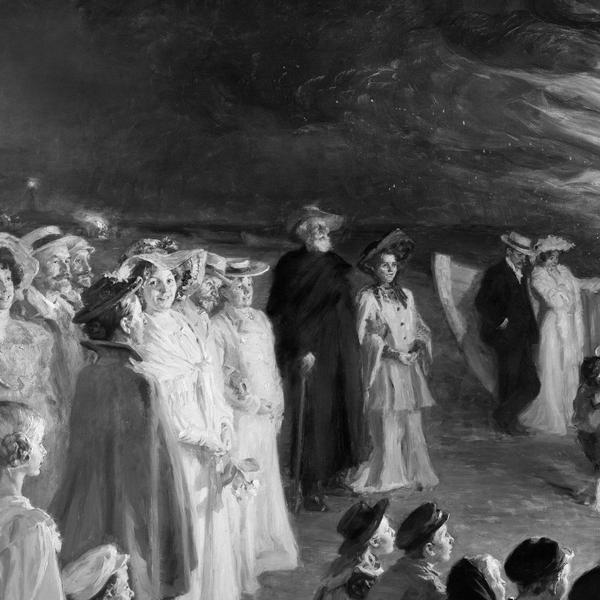
Chanel Beads
Your Day Will Come
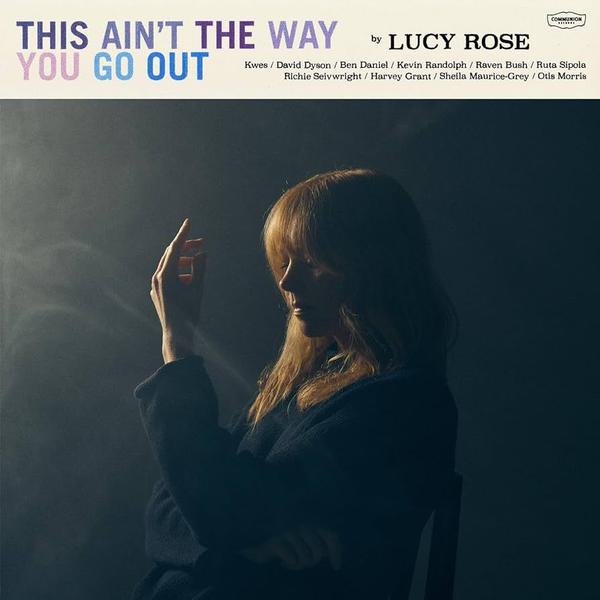
Lucy Rose
This Ain't The Way You Go Out
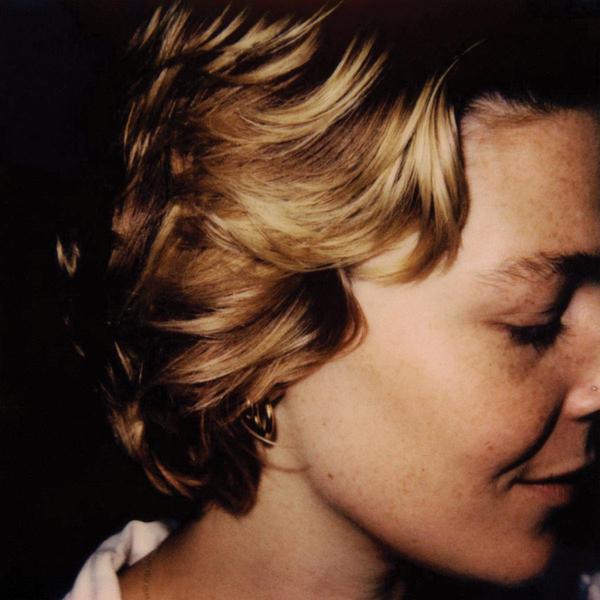
Maggie Rogers
Don't Forget Me





